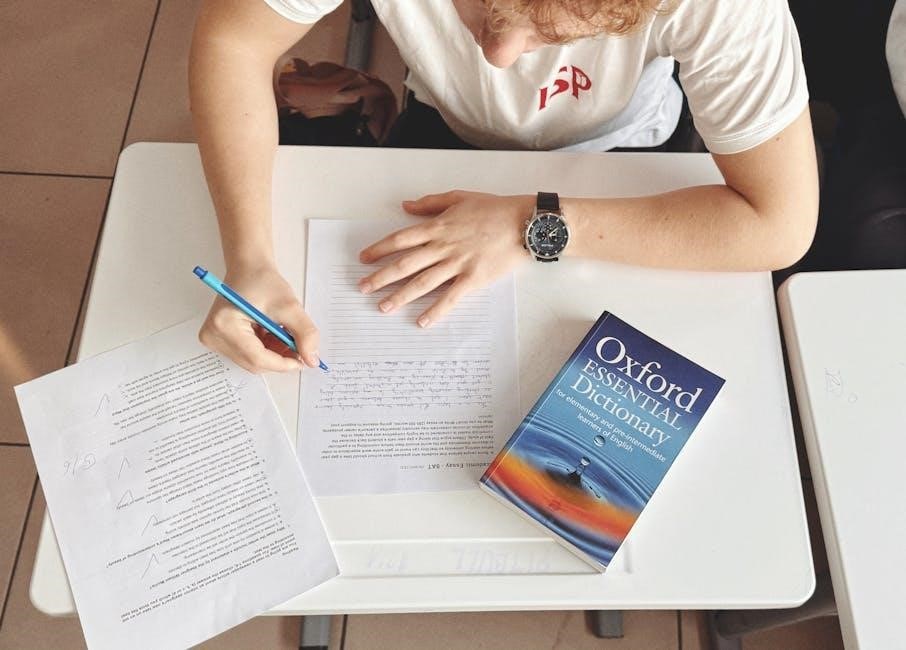Addressing sensitive topics like public masturbation requires careful consideration and empathy. Understanding the psychological aspects and legal implications is crucial for fostering a respectful and supportive environment. Open dialogue and professional guidance are essential in navigating such complex issues effectively.
Understanding the Sensitivity of the Topic
Discussing public masturbation is highly sensitive due to its intimate nature and potential legal implications. It involves personal privacy, societal norms, and the emotional well-being of individuals. Addressing such behavior requires extreme care to avoid embarrassment or further trauma. The power dynamics between educators and students add complexity, demanding a respectful and non-judgmental approach. Open communication and professional boundaries are essential to ensure the student feels safe while addressing the issue constructively.
Importance of Addressing the Issue Responsibly
Addressing public masturbation responsibly is crucial to ensure the student’s well-being and maintain a respectful learning environment. Ignoring the issue may lead to further discomfort or escalation. Educators must approach the topic with sensitivity, ensuring the student feels safe and supported. Legal and ethical considerations must guide the response to avoid misuse of authority. Providing appropriate resources and clear boundaries helps the student understand acceptable behavior while fostering trust and respect in the educational relationship.

Understanding the Behavior
Public masturbation is a complex behavior influenced by psychological factors, emotional states, and societal norms. Recognizing its impact on others is key to addressing it appropriately while ensuring privacy and dignity for all involved. Professional resources and guidance are essential to help individuals understand and manage such behaviors responsibly.
Recognizing the Signs of Masturbation in Public Spaces
Identifying such behavior involves observing inappropriate actions in public areas, such as discreet hand movements or suggestive body language. It is important to approach the situation with empathy, ensuring privacy and dignity for all parties involved. Recognizing these signs requires a balance between awareness and discretion. Professional guidance is essential to address the behavior appropriately while providing resources for understanding and managing such actions responsibly.
The Psychological and Emotional Aspects of the Behavior
Public masturbation can stem from various psychological factors, including emotional distress, lack of awareness, or underlying mental health conditions. It is important to approach the situation with empathy, recognizing that such behavior may indicate deeper emotional or developmental challenges. Addressing these aspects requires a supportive and non-judgmental environment, ensuring the individual feels safe to explore their feelings and behaviors. Professional guidance and appropriate resources are essential to help the individual understand and manage their actions effectively.
Ethical Considerations
Addressing sensitive topics requires respecting privacy and maintaining professional boundaries. Ensuring confidentiality and promoting a safe, nonjudgmental environment is crucial when discussing personal or inappropriate behaviors with students.
The Role of the Educator in Addressing Sensitive Topics
Educators play a critical role in addressing sensitive topics with care and professionalism. They must create a safe, nonjudgmental environment, ensuring privacy and confidentiality. It is essential to approach such issues with empathy, providing accurate information while respecting boundaries. Educators should foster open dialogue, encouraging students to express concerns without fear of stigma; Additionally, they must maintain ethical standards, avoiding any actions that could be perceived as inappropriate or unprofessional. Their responsibility includes guiding students toward understanding appropriate behavior and seeking additional resources when necessary.
Respecting Privacy and Boundaries in Instruction
Respecting privacy and boundaries is paramount when addressing sensitive topics. Educators must ensure that discussions are conducted in a confidential and respectful manner, avoiding any actions that could make students feel uncomfortable. Clear boundaries should be established to maintain professionalism, and personal space must be respected at all times. It is essential to be mindful of cultural and individual differences, adapting approaches to meet each student’s needs while maintaining a safe and supportive learning environment. This fosters trust and encourages open communication.

Legal Implications
Legal implications involve understanding laws related to sexual education and harassment. Instructors must adhere to policies to avoid claims of misconduct or inappropriate behavior, ensuring compliance with regulations.
Understanding Laws Related to Sexual Education and Harassment
Understanding laws related to sexual education and harassment is crucial for educators. These laws vary by region but generally aim to protect students from inappropriate conduct. Instructors must familiarize themselves with local and national regulations to ensure compliance. Failure to adhere to these laws can result in legal consequences, including claims of misconduct or harassment. Staying informed about legal boundaries helps educators provide appropriate guidance while maintaining professionalism and respect for student privacy.
Liabilities and Responsibilities of the Instructor
Instructors bear significant legal and ethical responsibilities when addressing sensitive topics. They must ensure their actions comply with legal standards to avoid liability. Failure to maintain professional boundaries or provide appropriate guidance can result in legal consequences. Educators are expected to uphold confidentiality and respect student privacy while addressing such issues. Their role involves balancing empathy with adherence to legal and ethical guidelines to create a safe and respectful learning environment. Proper documentation of interactions can also help mitigate potential liabilities.

Addressing the Student’s Needs
Empathy and professionalism are key when addressing sensitive student behaviors. Providing appropriate resources and guidance ensures the student receives support while maintaining a respectful and confidential environment.
Approaching the Topic with Empathy and Professionalism
Approaching such sensitive topics requires a balance of empathy and professionalism. Educators must create a safe, non-judgmental space for open dialogue, ensuring the student feels respected and understood. It’s crucial to acknowledge the complexity of the issue while maintaining clear boundaries. Professionalism involves providing accurate, age-appropriate information and resources without overstepping personal or cultural limits. By fostering trust and confidentiality, educators can help students navigate their emotions and behaviors constructively, promoting healthy development and self-awareness.
Providing Resources for Appropriate Sexual Education
Providing age-appropriate sexual education resources is essential for addressing sensitive behaviors. Educators should recommend reputable materials, such as educational pamphlets, online resources, or counseling services, to help students understand healthy boundaries and appropriate conduct. These resources should be tailored to the student’s developmental level and cultural context. Additionally, connecting students with professional counselors or support groups can offer personalized guidance. Ensuring access to accurate and empathetic information fosters a supportive environment for positive growth and understanding.

Maintaining Professionalism
Maintaining professionalism involves setting clear boundaries, adhering to ethical guidelines, and documenting interactions for transparency. This ensures a respectful and structured approach to addressing sensitive student behaviors effectively.
Setting Clear Boundaries in the Student-Teacher Relationship
Establishing clear boundaries is essential to maintain professionalism and ensure a respectful learning environment. This involves defining acceptable interactions, respecting personal space, and avoiding situations that could be misinterpreted. Clear boundaries help prevent misunderstandings and protect both the educator and student from potential legal or ethical issues. They also foster trust and stability in the relationship, allowing for focused academic growth and emotional well-being. Consistently enforcing these boundaries is key to upholding professional standards and promoting a safe, respectful classroom atmosphere.
Documenting Interactions for Transparency
Documenting interactions ensures transparency and accountability in the student-teacher relationship. Keeping detailed records of conversations, actions, and decisions helps maintain clarity and trust. This practice provides a clear reference point for understanding the context of interactions and demonstrates professionalism. Consistent documentation also protects both parties by creating a factual record, which can be invaluable in addressing misunderstandings or legal concerns. It fosters a culture of openness and responsibility, ensuring that all interactions remain ethical and appropriate.
Summarizing the Key Points of the Discussion
The discussion emphasized the importance of addressing sensitive topics with empathy and professionalism. Key points included understanding the psychological and legal implications, maintaining clear boundaries, and providing appropriate resources. Ensuring a respectful and supportive environment was highlighted as crucial. Additionally, the role of educators in fostering open dialogue and respecting privacy was underscored. By prioritizing these elements, educators can effectively navigate complex situations while promoting student well-being and understanding.
Encouraging Open Dialogue for Future Interactions
Fostering open dialogue creates a safe space for students to express concerns and seek guidance. Encouraging questions and maintaining confidentiality builds trust. Educators should promote a non-judgmental environment, allowing students to explore topics comfortably. By actively listening and providing accurate information, educators empower students to make informed decisions. This approach not only addresses immediate issues but also equips students with the confidence to seek help in the future, ensuring ongoing support and understanding.
